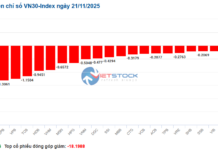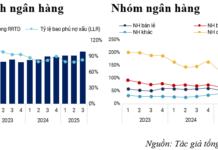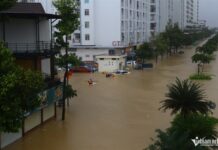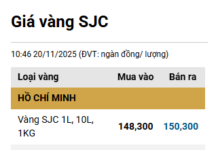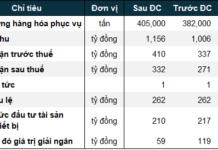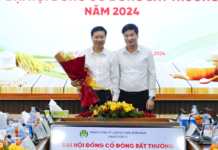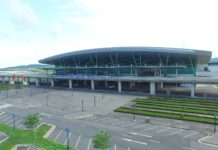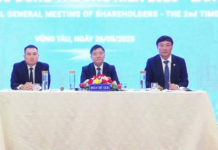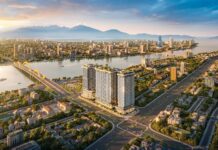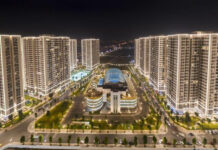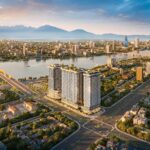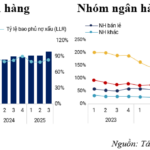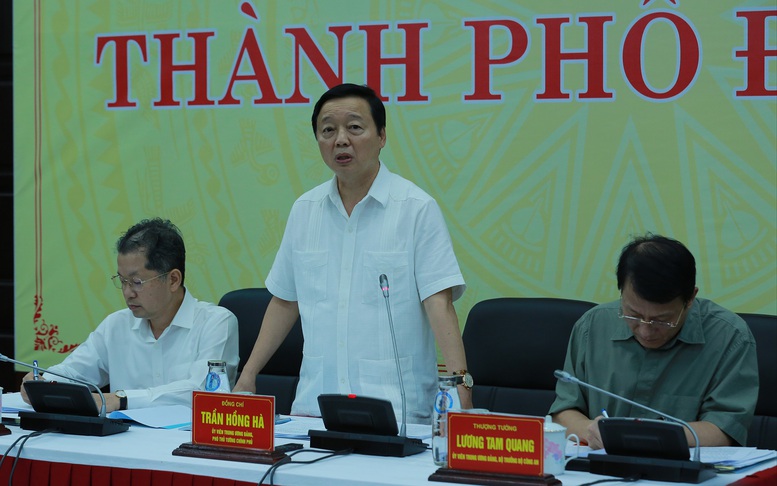
Deputy Prime Minister Tran Hong Ha: The handling and resolution process must go to the end, in the spirit of the common cause – Photo: VGP/Minh Khoi
Also attending the working session were Senior Lieutenant General Luong Tam Quang, Minister of Public Security; and leaders of a number of ministries, sectors, and central agencies.
Chairman of the Da Nang People’s Committee Le Trung Chinh said that the city’s gross regional domestic product (GRDP) in the first six months of 2024 is estimated to increase by 5% over the same period in 2023, with the second quarter’s growth rate reaching 8.35% year-on-year. The city’s GRDP scale in the first half of 2024 ranked 17th out of 63 provinces and cities.
The trade and service sector continued to be a bright spot, making positive contributions to the city’s overall economic growth.
The total number of guests accommodated by lodging establishments in the first seven months of the year is estimated at 6.6 million, up 33% from the same period in 2023. Export turnover reached USD 1,102.7 million, up 3.7%, while import turnover is estimated at USD 768.4 million, up 25%.
The production and business activities of economic components in the city have been regaining growth momentum. The industrial production index in the first six months of 2024 is estimated to increase by 3.75% over the same period last year, with the processing and manufacturing industry growing by 3.5%.
However, businesses are facing numerous difficulties. The real estate market remains stagnant, credit growth is low, and transportation costs are high…
The progress of project implementation and public investment disbursement is slow. The selection of investors and the construction of industrial park and cluster infrastructure are lagging, failing to meet the timely needs of land funds and production premises for industrial enterprises.
The city faces challenges in inspecting and resolving land-related problems in some projects as per inspection conclusions, court rulings, or projects not subject to inspections but requiring similar handling.
Some urban and housing projects with civil disputes have put additional pressure on the city government in handling complaints and lawsuits from people against investors, affecting the city’s socio-economic development goals.
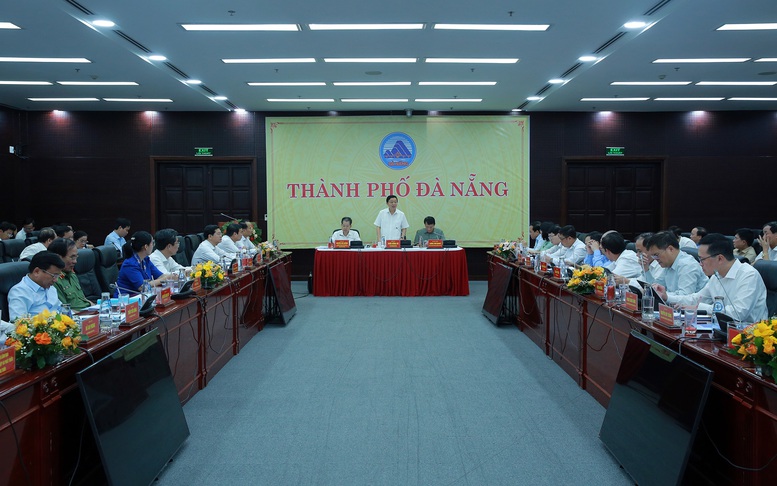
Deputy Prime Minister Tran Hong Ha chairs the working session between the Government delegation and Da Nang City – Photo: VGP/Minh Khoi
In addition to the resolved issues, leaders of the Ministry of Planning and Investment, Ministry of Natural Resources and Environment, Ministry of Science and Technology, and Ministry of Finance directly discussed Da Nang City’s unresolved proposals regarding procedures, policies, and special mechanisms, as well as capital allocation for key projects in urban development, seaports, transportation infrastructure, international finance, information technology, high technology, and innovation…
Da Nang also made new proposals related to the management of infrastructure assets in cultural, sports, tourism, and exhibition center institutions; decentralization in approving adjustments to urban and construction planning for functional areas; organizing bidding to select investors for industrial park infrastructure business; etc.
The delegates also examined the implementation of Decision No. 153/QD-TTg on the establishment of the Prime Minister’s Working Group on inspecting, reviewing, resolving, and removing difficulties and obstacles related to projects and land in inspection conclusions, inspections, and court rulings in some provinces and cities; and the deployment of Conclusion No. 77-Kl/TW on the Proposal “Solution to difficulties and obstacles related to projects, land in inspection conclusions, inspections, and court rulings in some provinces and cities.”
Secretary of the Da Nang Party Committee Nguyen Van Quang requested each ministry and sector to coordinate and work with the city on the content and projects facing obstacles and difficulties, identifying specific handling methods, responsibilities, and problem-solving authority.
Deputy Minister of Justice Tran Tien Dung suggested the need for working groups to inspect and propose solutions for each project or group of projects with similar difficulties and obstacles, reporting to competent authorities for handling in the next period.
Concluding the working session, Deputy Prime Minister Tran Hong Ha emphasized the principles of handling difficulties and obstacles related to projects and land, which are to grasp the actual situation, clearly identify relevant laws and regulations, authority for problem-solving, and propose solutions to ensure a balance of interests between the State, enterprises, and people, without legitimizing violations. “The handling and resolution process must go to the end, in the spirit of the common cause,” he added.
To implement Conclusion No. 77-Kl/TW, the Deputy Prime Minister requested a classification and list of problems to be solved after new laws and regulations on land take effect; problems under the authority of local governments; problems under the responsibility of ministries, sectors, and central agencies; and problems under the authority of the Prime Minister, the Government, and the National Assembly.
The Deputy Prime Minister assigned the Ministry of Justice to coordinate with ministries, sectors, and localities to submit to the National Assembly for the issuance of resolutions to handle specific projects within its competence.
“Da Nang and other localities must be proactive and work with ministries and sectors to accurately identify issues and responsible units,” the Deputy Prime Minister stated.

